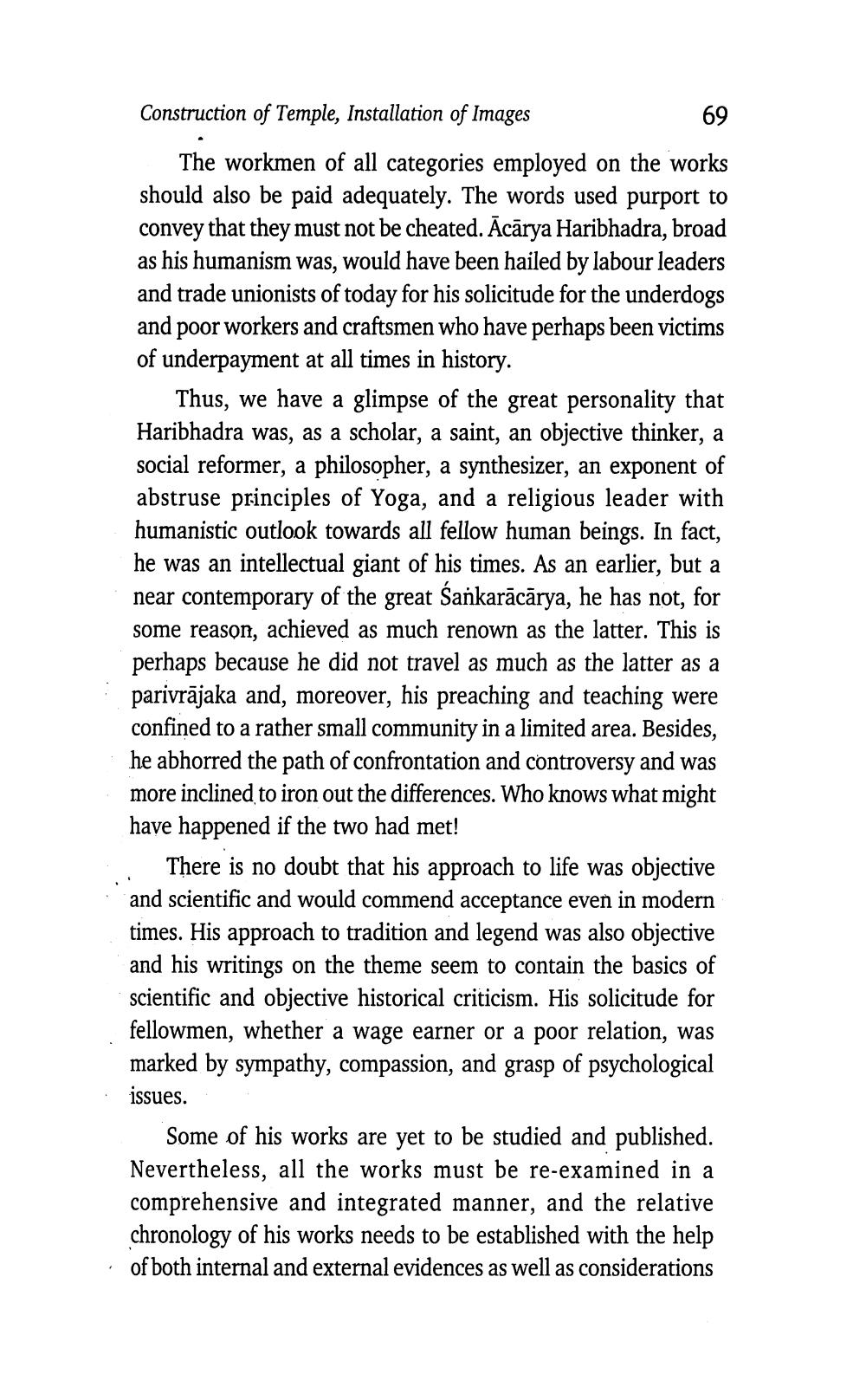________________
Construction of Temple, Installation of Images
69 The workmen of all categories employed on the works should also be paid adequately. The words used purport to convey that they must not be cheated. Ācārya Haribhadra, broad as his humanism was, would have been hailed by labour leaders and trade unionists of today for his solicitude for the underdogs and poor workers and craftsmen who have perhaps been victims of underpayment at all times in history.
Thus, we have a glimpse of the great personality that Haribhadra was, as a scholar, a saint, an objective thinker, a social reformer, a philosopher, a synthesizer, an exponent of abstruse principles of Yoga, and a religious leader with humanistic outlook towards all fellow human beings. In fact, he was an intellectual giant of his times. As an earlier, but a near contemporary of the great Sankarācārya, he has not, for some reason, achieved as much renown as the latter. This is perhaps because he did not travel as much as the latter as a parivrājaka and, moreover, his preaching and teaching were confined to a rather small community in a limited area. Besides, he abhorred the path of confrontation and controversy and was more inclined to iron out the differences. Who knows what might have happened if the two had met!
There is no doubt that his approach to life was objective and scientific and would commend acceptance even in modern times. His approach to tradition and legend was also objective and his writings on the theme seem to contain the basics of scientific and objective historical criticism. His solicitude for fellowmen, whether a wage earner or a poor relation, was marked by sympathy, compassion, and grasp of psychological issues.
Some of his works are yet to be studied and published. Nevertheless, all the works must be re-examined in a comprehensive and integrated manner, and the relative
chronology of his works needs to be established with the help · of both internal and external evidences as well as considerations




